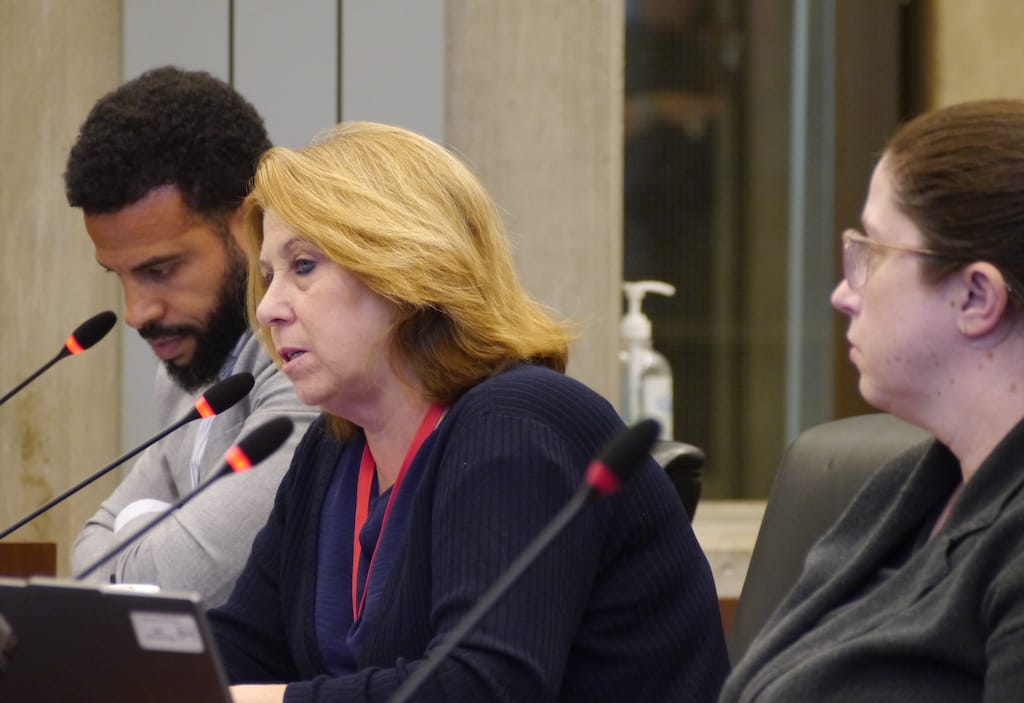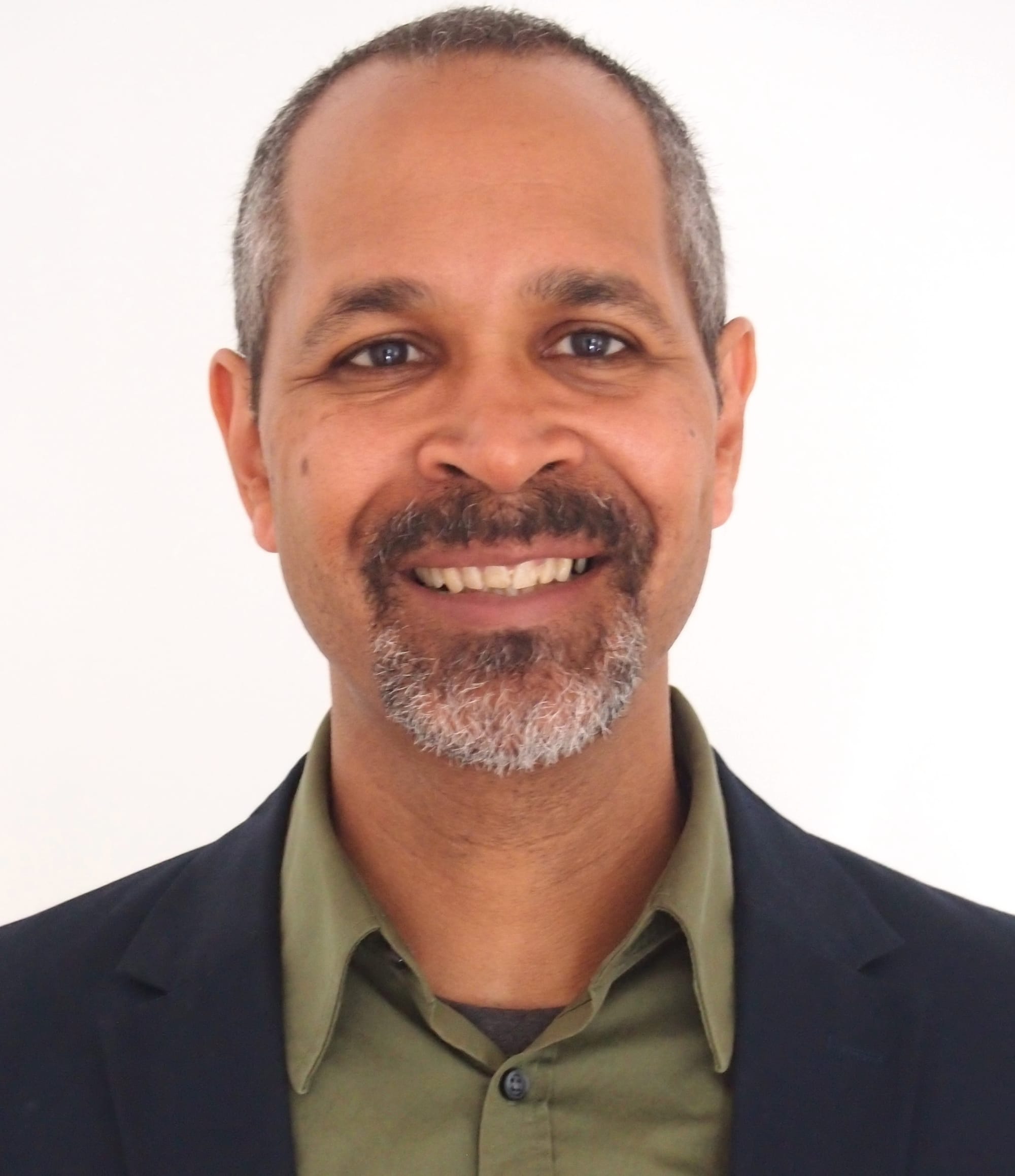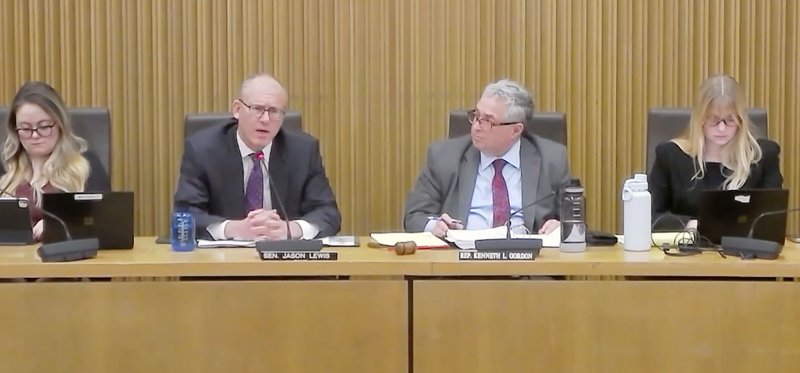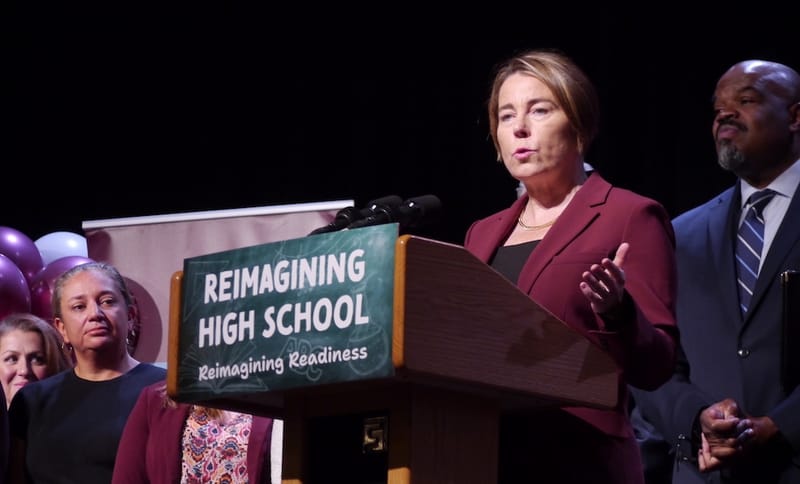Council questions BPS on new exam school admissions plan
Members of the City Council questioned Boston Public Schools officials at a hearing on Monday over proposed changes to exam school admissions that would likely reverse gains in admissions of Black, Latino, and Asian students and learners from low-income families.
Members of the City Council questioned Boston Public Schools officials at a hearing on Monday over proposed changes to exam school admissions that would likely reverse gains in admissions of Black, Latino, and Asian students and learners from low-income families.
BPS Superintendent Mary Skipper told councillors that “we are committed to creating an equitable, transparent policy that ensures all students have an opportunity for a seat at one of our city’s three exam schools.”
Admission to the exam schools is currently determined by a composite score that includes grades, a student’s score on the Measures of Academic Progress (MAP) test, and points awarded based on a student’s socio-economic circumstances — including enrollment in a Title 1 school in which more than 40 percent of students are low-income, whether a student lives in a Boston Public Housing development or is in the care of the state Department of Children and Families.
“Under the current policy, there are some students that have very high composite scores, but because of what elementary they attend, what neighborhood, they live in, it can be mathematically difficult or impossible for them to receive an invitation,” Skipper said.
“Our recommendations,” she added, “are meant to address that issue, ensuring there is a pathway for the highest scoring students in citywide while preserving the basic structure of distributing invitations equally across all socio-economic tiers, which has worked well over the last years.”
The policy in place, which was implemented in 2021, divides the city into census tract-based areas that are tiered by the socio-economic status of residents, with equal allocations of exam school seats across all four tiers. But because children in higher-income families are more likely to apply for admission to the city’s three exam schools, competition is greater for seats in the more wealthy areas of the city.
The plan Skipper is advancing would remove points awarded to exam school applicants in Title 1 schools and reduce the bonus points awarded to students who are homeless, in DCF care, or living in public housing.
Additionally, the plan would reserve 20 percent of all seats for students from any socio-economic tier with the highest scores on the MAP test.
Critics said the changes would roll back advances the exam schools have made in becoming more racially and economically diverse, the stated goal of the changes in admissions policies that were instituted in 2020.
“If the increase in underrepresented students is a good thing, why are these proposals decreasing that?” asks Krista Magnusson, a BPS parent and member of the Massachusetts Education Justice Alliance.
Before the changes were instituted in 2020, admissions to exam schools were based on test scores and grades alone. Black students made up just 7.6 percent of the student body at Boston Latin School, the largest of the three exam schools. Latino students were 13.3 percent and whites at 44.8 percent.
For 2025, Black students are at 15.3 percent, Latinos at 16.5 percent, and whites at 32 percent. Asians increased from 29.4 percent to 30.7 percent in that same time period.
Low-income students in 2020 made up just 16.3 percent of Boston Latin School’s student body while district-wide they made up 70 percent of the population. In 2025, low-income students make up 31.3 percent of Boston Latin School’s student body.
Councillors supporting Skipper’s proposed changes said they would help keep families from leaving the city. John FitzGerald, who represents Dorchester-based District 3, suggested that BPS should reserve 50 percent of seats for the highest-scoring students.
“What we are talking about today is probably the most important thing to keep families in the city,” he said.
In arguing against the changes, educational consultant Roseanne Tung said they would perpetuate the inequities that BPS sought to undo when the administration of former Mayor Martin Walsh instituted the changes.
“The groups that have declined in enrollment at exam schools since the policy changed are white, economically advantaged, and those who attended private, parochial and METCO schools,” Tung said.
The provision reserving 20 percent of the seats for applicants with the highest test scores has generated considerable controversy. The task force of civil rights advocates and education activists who in 2021 proposed the current admissions system debated a similar provision. That group met over five months in more than 25 public meetings and rejected the provision.
This year, there was no public task force and just two public meetings on the changes Skipper has proposed. Magnusson noted that this year’s meetings were held via webinar with limited participation from parents. There was no open chat room in the webinars, so participants couldn’t tell which questions were getting answered and which were ignored.
“There was no mechanism for discussion,” she said.
Representing Citizens for Juvenile Justice, Jilly Santos asked for a more inclusive process. While the School Committee is slated to vote on the new policy in November, Santos suggested more public meetings.
“We ask that BPS includes the voices of students and families that are underrepresented in the exam schools in this decision-making process with community engagement forums that are transparent about how these recommendations will regressively impact access and diversity,” she said.
During the hearing, some of the councillors said their constituents were fed up with the current system, which has made admission to exam schools more difficult for students in more affluent neighborhoods and school communities.
“When I look at my district — District 6 — students at the Linden, most of them are calling for an end to bonus points,” said Councillor Ben Weber. “I think a race-neutral way to approach this is bonus points for all the BPS schools.”
Skipper said attorneys told her that it would not be feasible to provide a benefit to one group of Boston residents — public school students — that isn’t available to private school students who are Boston residents.
John FitzGerald asked why BPS draws from the number of students in a given socio-economic tier, rather than the number of applicants to exam schools in each tier. Educational consultant Colin Rose, whom BPS tapped to help with the redesign of admissions, said the higher number of applicants in higher socio-economic tiers would skew the student body.
“We would lose the geographical representation we were looking for when the task force was created,” he said.
Skipper said the new policy, if adopted by the School Committee, would remain in place for a minimum of three years so that parents of children seeking admittance would have stability. For her part, Tung suggested the current policy should remain in place.
“I get that BPS wants a stable policy,” she said. “Then don't change it. Or if you do change it, have a good rationale that is about justice and is evidence based, not about compromise that reduces access for our most historically marginalized students in sending schools.”
This article originally appeared in the Dorchester Reporter.







